The ecommerce landscape is evolving rapidly, and ecommerce wholesale distributors are right at the heart of this transformation. With technology advancing at breakneck speed and consumer preferences shifting constantly, staying ahead of the curve is more important than ever. This blog post dives into the top trends shaping the future of ecommerce for wholesale distributors, offering insights into how businesses can adapt and thrive in an increasingly competitive market.
Table of Contents
- Personalization in Ecommerce Wholesale
- Mobile Commerce and Accessibility
- Sustainable and Eco-Friendly Practices
- AI and Automation in Ecommerce Wholesale Operations
- Omnichannel Strategies for Ecommerce Wholesale
- Best Platforms for Ecommerce Wholesale Using ERP
- Best Wholesale Ecommerce Platforms
- Conclusion
- Frequently Asked Questions (FAQ)
Personalization in Ecommerce Wholesale
Personalization is a game-changer in the world of ecommerce. Today's ecommerce wholesale distributors are leveraging customer data to tailor experiences, products, and communications to individual preferences and behaviors. This trend is not just about recommending products based on past purchases; it’s about creating a fully customized shopping experience that engages and retains customers. Successful personalization strategies involve sophisticated data analysis and real-time adjustments to marketing tactics and inventory management.
Case Studies:
- Company A implemented a dynamic pricing strategy, offering special deals based on customer purchase history and engagement level, resulting in a 30% increase in repeat business.
- Company B used customer data to send personalized email campaigns with curated product selections, boosting their conversion rate by 25%
Mobile Commerce and Accessibility
With over half of all internet traffic shopping from a mobile device, optimizing for mobile commerce is no longer optional for ecommerce wholesale distributors. Mobile optimization includes responsive website design, easy navigation, fast loading times, and streamlined checkout processes. Ensuring that your ecommerce platform delivers a seamless experience on smartphones and tablets is crucial for capturing and converting the mobile shopper.
Best Practices:
- Implement responsive design to ensure your website looks great on any device.
- Simplify the checkout process to reduce cart abandonment rates on mobile devices.
- Use mobile-first strategies in email marketing and digital advertising.
Sustainable and Eco-Friendly Practices
Sustainability is a growing concern among consumers, and this extends to the B2B sector as well. Ecommerce wholesale distributors that prioritize eco-friendly practices, such as sustainable sourcing, minimal packaging, and carbon-neutral shipping options, are not only contributing to environmental preservation but also appealing to a market segment that values corporate responsibility.
How to Adapt:
- Source products from suppliers with verifiable green credentials.
- Offer customers the option to offset the carbon footprint of their orders.
- Highlight eco-friendly products and practices on your ecommerce platform.

AI and Automation in Ecommerce Wholesale Operations
Artificial Intelligence (AI) and automation are revolutionizing ecommerce operations, from inventory management to customer service. By automating repetitive tasks, distributors can reduce errors, save time, and focus on strategic decision-making. AI can also provide predictive analytics for inventory forecasting, personalized shopping experiences, and optimized pricing strategies.
Examples:
- Automation Tools streamline order processing and fulfillment, improving efficiency and customer satisfaction.
- Chatbots provide 24/7 customer service, answering queries and facilitating orders without human intervention.
Omnichannel Strategies for Ecommerce Wholesale
An omnichannel approach ensures customers receive a consistent and seamless experience, whether they're shopping online from a mobile device, a laptop, or interacting through social media. For ecommerce wholesale distributors, this means integrating ecommerce platforms with traditional sales channels and providing unified customer support across all touchpoints.
Tips for Implementation
- Ensure inventory levels are synced across all sales channels to prevent stock issues.
- Use customer data to provide a personalized experience, regardless of the sales channel.

Best Platforms for Ecommerce Wholesale Using ERP
Selecting the right platform for your ecommerce wholesale business is crucial, especially when integrating ERP systems to streamline operations. Here are some of the best platforms that excel in ERP integration:

1. NetSuite ERP
NetSuite ERP is a comprehensive cloud-based ERP solution that offers robust functionality for ecommerce wholesale businesses. It integrates seamlessly with NetSuite's ecommerce platform, SuiteCommerce, providing a unified system that manages everything from inventory and order processing to financials and customer relationships.
Benefits:
- Real-time inventory and order management.
- Automated financial processes.
- Comprehensive customer relationship management (CRM).
- Scalable for growing businesses.
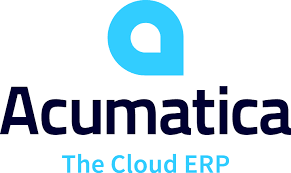
2. Acumatica
Acumatica is a cloud-based ERP solution tailored for small and medium-sized businesses. It offers comprehensive tools for managing ecommerce wholesale operations, including financials, inventory, and order management, with a strong emphasis on usability and mobility.
Benefits:
- User-friendly interface and mobile access.
- Real-time data and analytics.
- Scalable and flexible deployment options.
- Strong focus on customer service and support.
Ready to optimize your financial management system?
Uncover how ERP systems streamline operations, elevate decision-making, and fuel growth in today's dynamic business landscape.
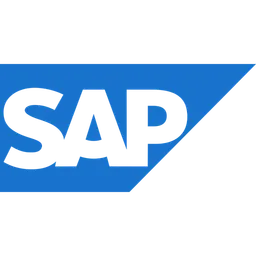
3. SAP S/4HANA
SAP S/4HANA is an advanced ERP system that supports a wide range of business processes. It integrates well with SAP’s ecommerce solutions, enabling wholesale distributors to leverage powerful analytics and automation tools to enhance efficiency and decision-making.
Benefits:
- In-depth analytics and reporting capabilities.
- Advanced supply chain management.
- Flexible deployment options (cloud, on-premise, hybrid).
- Enhanced user experience with SAP Fiori.
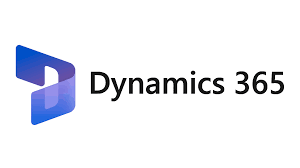
4. Microsoft Dynamics 365
Microsoft Dynamics 365 combines ERP and CRM capabilities, offering a versatile platform for ecommerce wholesale businesses. It integrates seamlessly with various ecommerce platforms and provides extensive tools for financial management, inventory control, and customer engagement.
Benefits:
- Unified ERP and CRM functionalities.
- Seamless integration with Microsoft’s suite of tools (e.g., Office 365).
- Scalable and customizable to meet specific business needs.
- Strong support for AI and machine learning applications.
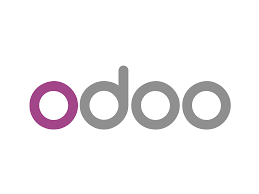
5. Odoo
Odoo is an open-source ERP platform that offers a modular approach, allowing businesses to select and integrate only the functionalities they need. It is ideal for small to medium-sized ecommerce wholesale distributors looking for flexibility and affordability.
Benefits:
- Highly customizable and modular.
- Cost-effective with open-source flexibility.
- Wide range of applications, from sales and inventory to accounting and marketing.
- Active community and third-party integrations.
Considering an ERP system?
We can help you transition smoothly from QuickBooks to a more powerful ERP solution.
Best Wholesale Ecommerce Platforms
In addition to ERP-integrated platforms, there are several top-notch wholesale ecommerce platforms that cater specifically to the needs of wholesale distributors:
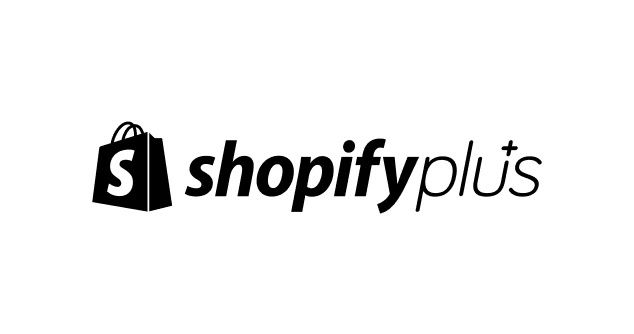
1. Shopify Plus
Shopify Plus is an enterprise-level ecommerce platform that offers robust features for wholesale businesses. It provides tools for managing bulk orders, custom pricing, and a dedicated wholesale channel, making it an excellent choice for ecommerce wholesale.
Benefits:
- Dedicated wholesale channel.
- Custom pricing and discount options.
- Scalable for large businesses.
- Extensive app ecosystem for added functionalities.

2. BigCommerce
BigCommerce offers a powerful ecommerce platform with advanced features tailored for wholesale businesses. It supports B2B functionalities like customer-specific pricing, bulk pricing, and integration with major ERP systems.
Benefits:
- Customer-specific pricing and bulk discounts.
- Integration with ERP and other business systems.
- Highly customizable and scalable.
- Strong SEO and marketing tools.
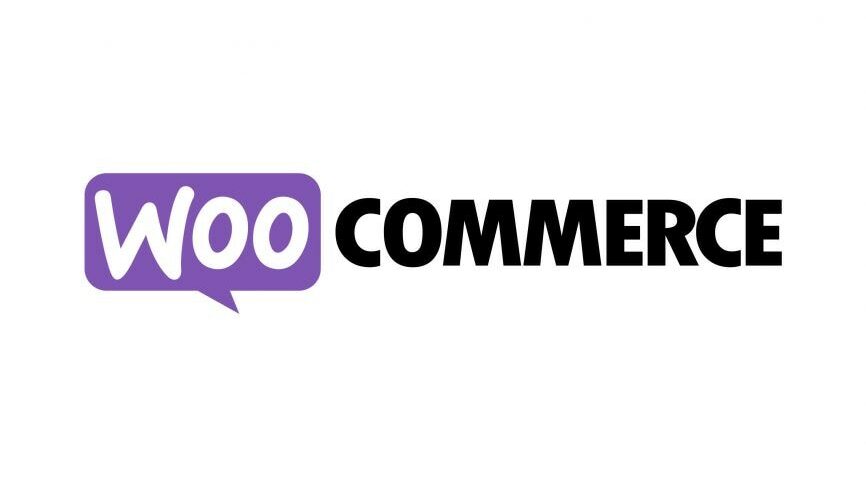
3. WooCommerce
WooCommerce, a WordPress plugin, provides a flexible and customizable platform for ecommerce wholesale businesses. It offers a variety of extensions to support wholesale functionalities, including tiered pricing, bulk ordering, and B2B-specific features.
Benefits:
- Highly customizable with numerous extensions.
- Seamless integration with WordPress.
- Support for tiered pricing and bulk ordering.
- Cost-effective for small to medium-sized businesses.
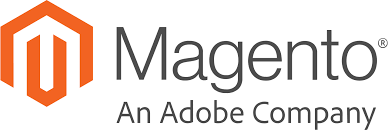
4. Magento Commerce
Magento Commerce, now part of Adobe, is a feature-rich ecommerce platform ideal for wholesale businesses. It supports advanced B2B functionalities, such as custom catalogs, price lists, and seamless ERP integration.
Benefits:
- Advanced B2B features.
- Custom catalogs and pricing.
- Integration with various ERP systems.
- Highly scalable and customizable.
Invest in post-implementation support services to maintain your ERP system's optimal performance.
Contact us today to discuss tailored support packages that fit your business needs!
Conclusion
Post-implementation support services are essential for maintaining the efficiency and functionality of your ERP system over time. Budgeting for ongoing support and maintenance costs is vital to ensure that you have access to timely assistance and updates to address any issues or evolving business requirements that may arise post-implementation.
Selecting the right ERP-integrated platform is essential for optimizing ecommerce operations and staying competitive. Platforms like NetSuite ERP, SAP S/4HANA, Microsoft Dynamics 365, Odoo, and Acumatica offer powerful tools and seamless integration to help businesses streamline their processes and enhance efficiency. Additionally, choosing a robust ecommerce platform like Shopify Plus, BigCommerce, WooCommerce, Magento Commerce, or TradeGecko can further enhance your wholesale business's capabilities.
The call to action for ecommerce wholesale distributors is clear: adapt, innovate, and thrive. Continuous learning and staying informed about emerging trends will be key to navigating the future of wholesale distribution successfully. Remember, in the dynamic world of ecommerce wholesale, standing still is not an option.
Moving from QuickBooks to an ERP system might seem daunting; however, it's crucial for businesses aiming to excel in today's competitive market. Recognizing when you've outgrown QuickBooks and embracing ERP capabilities can significantly boost efficiency, productivity, and profitability.
Interested in learning more?
Check out eCommerce + ERP + Analytics for your success!
Frequently Asked Questions (FAQ)
1. What is ecommerce wholesale?
Ecommerce wholesale refers to the online sale of goods in large quantities at lower prices, typically to retailers who then resell the products to consumers. This model allows wholesale distributors to reach a broader market through digital platforms.
2. Why is personalization important in ecommerce wholesale?
Personalization enhances the shopping experience by tailoring products, recommendations, and communications to individual customer preferences and behaviors. This approach helps build customer loyalty and increases repeat business by making each customer feel valued and understood.
3. How can ecommerce wholesale distributors optimize for mobile commerce?
Distributors can optimize for mobile commerce by implementing responsive website design, ensuring fast loading times, simplifying navigation, and streamlining the checkout process. Additionally, using mobile-first strategies in marketing and advertising can capture the attention of mobile shoppers.
4. What are some sustainable practices ecommerce wholesale distributors can adopt?
Sustainable practices include sourcing products from suppliers with green credentials, using minimal and eco-friendly packaging, and offering carbon-neutral shipping options. Highlighting these practices on the ecommerce platform can attract environmentally conscious customers.
5. How do AI and automation benefit ecommerce wholesale operations?
AI and automation improve efficiency by automating repetitive tasks such as order processing, inventory management, and customer service. These technologies also provide valuable insights through predictive analytics, helping distributors make informed decisions about inventory, pricing, and personalized marketing.
6. What is an omnichannel strategy in ecommerce wholesale?
An omnichannel strategy ensures a seamless and consistent customer experience across all sales channels, whether online or offline. This involves integrating ecommerce platforms with traditional sales methods and unifying customer support to provide a cohesive shopping experience.
7. How can ecommerce wholesale distributors stay ahead of market trends?
Distributors can stay ahead by continuously learning, adapting to new technologies, and implementing best practices in personalization, mobile optimization, sustainability, AI, automation, and omnichannel strategies. Keeping an eye on emerging trends and being willing to innovate are key to staying competitive.
8. What are the best platforms for ecommerce wholesale in terms of using ERP?
Some of the best platforms for ecommerce with strong ERP integration include NetSuite ERP, SAP S/4HANA, Microsoft Dynamics 365, Odoo, and Acumatica. These platforms offer comprehensive tools for managing various aspects of ecommerce operations, from inventory and order processing to financial management and customer relationship management.
9. What are the best wholesale ecommerce platforms?
Top wholesale ecommerce platforms include Shopify Plus, BigCommerce, WooCommerce, Magento Commerce, and TradeGecko (QuickBooks Commerce). These platforms offer robust features tailored for wholesale businesses, such as custom pricing, bulk ordering, and seamless ERP integration.

)





